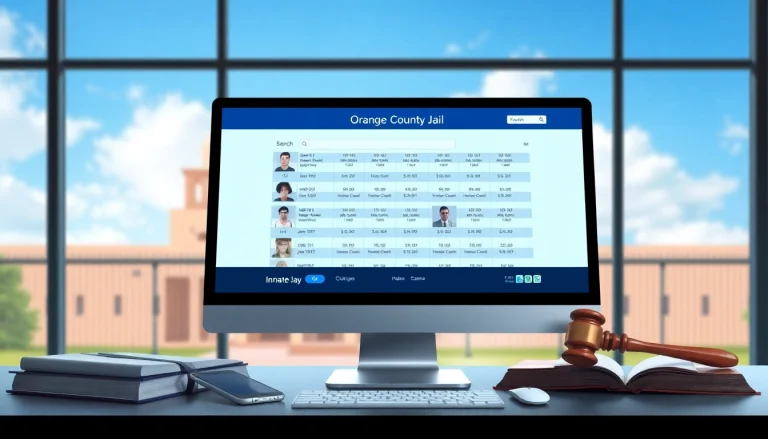
Understanding the Role of an Intellectual Property Lawyer
In today’s competitive landscape, the value of ideas and innovations cannot be overstated. An intellectual property lawyer plays a crucial role in ensuring that creators and businesses maintain ownership over their intellectual assets. From trademarks to copyrights, these legal professionals help safeguard vital aspects of commercial success. In this comprehensive guide, we will delve into the multifaceted responsibilities of an intellectual property lawyer, exploring their impact on businesses and the various legal services they offer.
Defining Intellectual Property Law
Intellectual property law encompasses the legal rights that protect creations of the mind, which can include inventions, literary and artistic works, designs, symbols, names, and images used in commerce. Intellectual property (IP) is categorized into several areas:
- Patents: Protect inventions or processes for a specific period, granting the patent holder exclusivity over their use and production.
- Copyrights: Protect original works of authorship, such as books, music, and art, ensuring that creators have control over their work.
- Trademarks: Protect symbols, names, and slogans used to identify goods and services, preventing consumer confusion.
- Trade Secrets: Protect confidential business information that provides competitive advantages, such as formulas, practices, or processes.
Importance of Intellectual Property in Business
For businesses, protecting intellectual property is crucial for several reasons:
- Competitive Advantage: IP protection helps businesses distinguish themselves from competitors, attracting customers with unique offerings.
- Revenue Generation: Well-protected IP assets can create additional revenue streams through licensing agreements and royalties.
- Market Position: Strong IP portfolios can enhance a business’s market position and valuation, making it more attractive to investors.
- Risk Management: Effective IP protection minimizes the risk of infringement claims or loss of business assets.
Common Misconceptions about Intellectual Property Lawyers
Despite the critical role these lawyers play, there are several misconceptions about their work:
- Only for Large Companies: Many believe that IP lawyers are only needed by large corporations, but small businesses and startups can benefit significantly from their expertise.
- Just for Litigation: While IP lawyers certainly handle litigation, they also provide proactive services such as IP strategy development and registration.
- One-Size-Fits-All Approach: Different IP types require varying legal strategies; thus, an experienced lawyer tailors their approach based on the specific needs of their clients.
Services Provided by an Intellectual Property Lawyer
Intellectual property lawyers provide a wide range of services that are essential for navigating the complexities of IP protection.
Patents: Protecting Your Inventions
Obtaining a patent is a critical step for inventors and businesses to protect their innovations. An intellectual property lawyer assists in:
- Patent Searches: Conducting thorough searches to ensure the invention is unique and not infringing on existing patents.
- Application Preparation and Filing: Preparing the necessary documentation and filing applications with the relevant patent office.
- Enforcement: Representing clients in patent disputes, including infringement cases, to protect their rights.
Copyrights: Safeguarding Your Creative Works
Copyrights provide legal protection for artistic and literary works. An intellectual property lawyer can help clients with:
- Registration: Assisting in the registration process to establish ownership and provide legal evidence of copyright.
- Licensing Agreements: Drafting contracts for the use of copyrighted material, ensuring that clients receive fair compensation.
- Infringement Claims: Taking action against unauthorized use of the work, including negotiation and litigation if necessary.
Trademarks: Building Brand Identity
A solid trademark strategy is essential for businesses to protect their brand identity. Intellectual property lawyers engage in:
- Trademark Search and Registration: Conducting searches to confirm that the chosen trademark does not conflict with existing ones and facilitating registration.
- Monitoring: Keeping an eye on trademark usage to prevent dilution or infringement by others.
- Enforcement: Taking action against infringers, including cease-and-desist letters and litigation if necessary.
How to Choose the Right Intellectual Property Lawyer
Selecting an intellectual property lawyer is a crucial decision that can significantly impact your business. Here are some factors to consider:
Assessing Experience and Specialization
Intellectual property law is a specialized field with various areas of focus. When searching for a lawyer, consider their specific experience with:
- Your type of intellectual property (patents, trademarks, copyrights).
- The relevant industry or field, as familiarity with industry-specific regulations can be beneficial.
- Prior case histories and outcomes that align with your legal needs.
Understanding Fee Structures
Different lawyers will have different fee structures, including hourly rates, flat fees for specific services, or contingency fees. Ensure you:
- Discuss and clarify fees upfront, covering what is included and possible additional expenses.
- Compare fees among different lawyers while weighing their experience and expertise.
- Determine the financial feasibility of obtaining their services based on your budget and expected ROI.
Evaluating Client Testimonials and Case Studies
Client testimonials and case studies provide insight into a lawyer’s effectiveness and reliability. When considering potential lawyers:
- Request references from past clients to gauge their satisfaction and success.
- Look for case studies that demonstrate their ability to handle similar situations or challenges.
- Review online ratings and reviews for additional perspectives on their reputation.
The Process of Working with an Intellectual Property Lawyer
Understanding the typical process of working with an intellectual property lawyer can help you set expectations and stay organized.
Initial Consultation: What to Expect
The initial consultation serves as an opportunity for both parties to assess compatibility. During this meeting:
- Discuss your intellectual property needs and goals.
- The lawyer will assess the strengths and weaknesses of your current IP strategies.
- Establish a preliminary action plan and any immediate steps needed.
Developing an IP Strategy
Once retained, the lawyer will work with you to develop a comprehensive intellectual property strategy, which may include:
- Identifying key intellectual property assets worth protecting.
- Creating a timeline for registration and renewal of IP rights.
- Establishing a monitoring plan to ensure ongoing protection against infringement.
Filing and Litigating IP Matters
Depending on your needs, the lawyer will assist in filing applications with the relevant authorities and may represent you in disputes involving:
- Patent, copyright, or trademark infringement claims.
- Negotiations with other parties regarding licensing or assignment of IP rights.
- Litigation processes in court should disputes arise.
The Future of Intellectual Property Law
As technology and global markets evolve, so too does the landscape of intellectual property law. It is essential to stay informed about emerging trends and their implications.
Trends in Intellectual Property Protection
Key trends shaping the future of IP protection include:
- Globalization: As businesses expand internationally, understanding international IP laws becomes vital to maintaining protection across borders.
- Digital Content Protection: With the rise of digital media, new challenges arise in protecting copyrights and enforcing rights online.
- Intellectual Property in AI: The intersection of intellectual property and artificial intelligence raises questions about authorship and patentability of AI-generated works.
Impact of Technology on IP Law
Advancements in technology can significantly impact the practice of intellectual property law:
- Easier Access to IP Registration: Technology has streamlined the patent application and trademark registration processes, empowering more inventors and businesses to secure protections.
- Online Infringements: The internet makes it simpler for infringers to violate IP rights, necessitating innovative legal responses and monitoring strategies.
Preparing for Changes in Global IP Regulations
Staying ahead of changes in intellectual property regulations requires vigilance and adaptability:
- Businesses must continuously educate themselves about new laws and treaties that could affect their IP strategies.
- Proactively engaging with intellectual property lawyers ensures that business strategies comply with evolving regulations.






